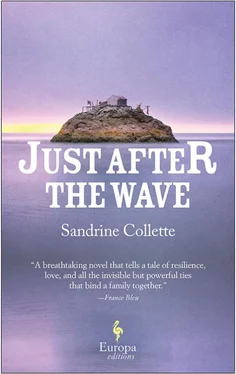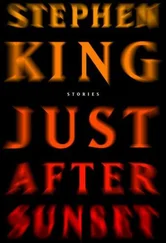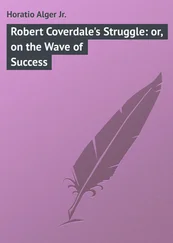And then she sees it gliding behind them. Its dark spine is catching up with them, keeping pace by the port side of the boat. The father stops rowing, undecided. At that moment the mother sees in his gaze that he is tempted to strike the animal, to make it flee or to hurt it, she can sense it even in the oar as it trembles for a fraction of a second in the father’s hand, at the same time that she realizes how big the animal is and how great the risk; should it get angry, it could surely capsize them with a single lunge—and half rising from her seat, with a shrill cry the mother warns them:
“No!”
In that same instant, Liam and the father thrust their oars into the sea, propelling the boat ever further, ever harder. Madie loses her balance and almost falls in the water, catching herself on the ropes strung around the gunwale, with Marion in her arms. No one noticed, except Emily and Sidonie, who don’t have the reflex to cry out; they are alone in the stern, the mother and her daughters. They are cut off by the pile of supplies and blankets from the rest of the family, from Liam and the father at the oars, and Matteo keeping watch at the bow. If something should happen to them, no one would realize. She’s not even sure the sound of them falling overboard would drown out the splashing of the oars. The time to cry out and the beast would be upon them. A few seconds of struggle, red water all around them, and the father would hear too late. The mother sits back down, tries to erase the vision. Swears that if they find an island she will make them all get out so they can move the supplies to the stern of the boat. Never mind, this business of ballast. She feels so far away that her voice would not carry beyond the supplies.
“I think we’re all right now,” says the father.
The mother stares into the opaque black water, sees no trace of the beast, neither shadow nor movement.
“We’re all right,” says the father again.
Yes, maybe it went deeper. To follow them without their knowing. To wait for a moment when they’re not as vigilant, when they’re tired, or night has fallen, there are a thousand ways to outsmart them. The mother thinks again of its strange shape, an animal she has never seen, a stranger to this sea where they have fished all kinds of sea creatures over the years. A beast that the drowned land sent packing, scudded through the water from who knows where, obliged to adapt to an unfamiliar place. Or a little fish, grown gigantic with the miraculous abundance of food and habitat? Matteo is right: a monster. And once again, the mother hopes the father, too, is right, when he says it has gone away.
During the night, they dropped anchor so they would not drift. It is so easy to get lost when you have no landmarks either ahead of you or behind you, or anywhere. And the oarsmen need to rest, even though Matteo made it possible for the father and Liam to rest for a few hours during the day. He’s dead tired, the younger brother, with his eyes as big as the sea, and shadows beneath them seeping into his cheeks. So the mother did not protest when they moored in the middle of nowhere, for Matteo and Liam’s sake, because otherwise they won’t make it. She examines her boys and they dodge her gaze, they don’t want her to see how exhausted the exertion has made them, they’re not even hungry, she forces them. She reaches in the first bag for pancakes and hard-boiled eggs; she cooked their entire stock when she knew they were leaving, a whole night spent boiling eggs, fortunately at the time the hens were still laying constantly, she knows the number by heart, there are ninety-two eggs in the bag. She left thirty behind for the little ones abandoned on the hill, the hens will go on laying there, and the children know how to make omelets. She feels a lump in her throat at the sudden thought of Louie, Perrine, and Noah; she reaches abruptly for the knife, cuts up the pancakes, unequal portions as always, she doesn’t want the vision of the three children on the island to come to her. How did they react this morning when they awoke and found the house empty? In their panic, did they see the letter? Do they understand that their father will be coming back for them? And what if they did panic? What if they jumped in the water to go after them? Cut your slices, Madie, shut off your brain, there’s nothing good in there. God, please make sure Perrine manages to cook something. Make it so that Louie will agree to kill his hens one by one, if they get hungry. Maybe they are still at the water’s edge, crying, incapable of moving, they’ll have lost all will, all three of them—why them? Yes, why them? The mother feels the wrenching in her flesh, she knows there were no solutions, it was those three or the others, either way they had to leave someone behind, they are already crammed on this boat worse than sacks of grain, the eight of them. In the falling night, she prays the water level will not rise all of a sudden. That the father will have time to go back. Stop that, stop right now, otherwise you’ll start crying. Her heart upended with sorrow and rage she peels her eggs, three for the father, two for Liam and Matteo. Just one for everyone else. Don’t eat too fast. That much she said out loud.
A strange picnic on a boat in the middle of the black waves. They have lit two candles. The little girls want to stretch their legs, to run, to squabble. The mother points to the water: Where? They look out at it in silence. Liam and Matteo are already asleep, rolled up in blankets. Emily grumbles.
“There are mosquitoes.”
“We’ll climb under the sheet,” whispers Madie.
“It’s too hot…”
“During the night it will get cool. You’ll see. We’ll be glad to have a blanket.”
“Where are we going to sleep?”
“Lie down right there. I put a little blanket so it won’t be so hard.”
“Are we going to put on our jammies?”
“No.”
“Are we going to brush our teeth?”
“Not tonight.”
“Are you going to sleep there too?”
“Of course I am, where else am I supposed to go?”
The mother glances at the water around them, and touches the ropes on the sides of the boat. Will she manage to sleep? She bets she won’t. She’s too afraid one of her children will fall overboard. She wishes she could have lashed them all together; but the older ones would have given her an exasperated look, and the little ones would have whined that it bothered them. The father would have said she was crazy.
The father has left a candle burning on the other side of the supplies.
“What are you doing?” murmurs the mother; she cannot see him.
“I’m studying the map.”
“Are we lost?”
“No, I have a compass. I’m just looking, for tomorrow.”
“Are we headed east?”
“Yes. Always.”
“How many miles did we do today?”
“I don’t know.”
“But roughly?”
“The only thing I know is that that’s all we could do.”
“We made good progress,” says the mother, with conviction.
“It would be better with some wind.”
“God forbid.”
That is Madie’s greatest fear, a storm. Ever since the climate went to the dogs and they’ve been battered by bad weather, she has been afraid of gusts, of sudden squalls that ambush them with a downpour in a matter of seconds, and more than anything of the wind, the wind that brought the sea to their doorstep, obliging them to flee, the wind that would have them lie flat on the ground if they don’t want to be blown away, the wind which on the day of the great tidal wave took the hens from the island. Never before had Madie imagined she would ever see those hens flying away, caught in a wind that whirled them every which way, like wisps of straw that she and Pata never saw again. They would have laughed about it if it hadn’t been so tragic, because at the same time the hens were being scooped up from the ground, a section of the barn roof collapsed, crushing everything underneath it. The father wanted to save what he could—tarpaulins, spare bottles of water, and the wood, because it would eventually dry—so he rushed out. He made it ten yards, no further, before he turned around, nearly swept off his feet himself by the gusting wind, left deep down with an indefinable feeling of weakness. Shrubs he knew did not grow on their hill rolled by like tumbleweeds; one of them scratched his leg and he stumbled. He came back in on all fours, his expression wild, his hair clinging to his brow. It was impossible to close the shutter behind him, he was fighting over it with the wind, which kept slamming it against the wall. He gave up. He would never forget the force of the heavens.
Читать дальше












